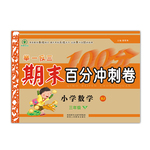题目内容
A famous study was done in a school by a professor (教授) from a university. At the start of the school year, the teachers were given the names of five children. They were told that these five were the most excellent students in the class. But the fact was that these students were only average(中等),and they were not the best students at all. Well, guess what? At the end of the year, all the five average students scored among the highest in the class.
What made these average students change so much to become top students?The only difference was the change in their teachers’ attitude(态度). Because the teachers believed that these five kids were the top students,they expected(期望) more from them. And so these five average students began to believe and expect more from themselves. So they worked harder to do as well as they could.
Do you know why? If you expect the best from people, they’ll usually want to give you their best. A great leader said, “Treat(对待) a person just how he appears to be on the outside, and you’ll make him even worse. But treat a person like he’s already a success,and you’ll help make him the best he can be.”
Like the true story of 7-year-old Johnny, his teacher got so angry with him that one day she said,“Johnny,you’re the naughtiest(最顽皮的) boy in this class. I’m sure you’ll never change.” The next year Johnny had a new teacher. And on the first day of class,she met with Johnny after school and said,“Johnny, I’ve heard a lot about you! But do you know that I don’t believe a word of it.” And every day after that, this new teacher treated Johnny as if he was one of the smartest students even when Johnny did naughty things. Later on, Johnny became a school leader. Because that’s the power of our belief(信任) and attitude(态度) toward children.
小题1:The professor started his research(研究)by _______.
小题2:The five average students became top students mainly because of ________.
小题3:Why did the writer tell us the story of 7-year-old Johnny?
小题4:The writer writes the passage mainly by ______.
小题5:What does the passage mainly tell us?
What made these average students change so much to become top students?The only difference was the change in their teachers’ attitude(态度). Because the teachers believed that these five kids were the top students,they expected(期望) more from them. And so these five average students began to believe and expect more from themselves. So they worked harder to do as well as they could.
Do you know why? If you expect the best from people, they’ll usually want to give you their best. A great leader said, “Treat(对待) a person just how he appears to be on the outside, and you’ll make him even worse. But treat a person like he’s already a success,and you’ll help make him the best he can be.”
Like the true story of 7-year-old Johnny, his teacher got so angry with him that one day she said,“Johnny,you’re the naughtiest(最顽皮的) boy in this class. I’m sure you’ll never change.” The next year Johnny had a new teacher. And on the first day of class,she met with Johnny after school and said,“Johnny, I’ve heard a lot about you! But do you know that I don’t believe a word of it.” And every day after that, this new teacher treated Johnny as if he was one of the smartest students even when Johnny did naughty things. Later on, Johnny became a school leader. Because that’s the power of our belief(信任) and attitude(态度) toward children.
小题1:The professor started his research(研究)by _______.
| A.teaching the five children himself |
| B.asking the five children to find a new teacher |
| C.telling the five students to work harder than ever before |
| D.telling the teacher the five students were the best in the class |
| A.the professor’s study |
| B.the teachers’ hard work |
| C.the change in the teachers’ attitude |
| D.the change in the professor’s attitude |
| A.To let us know how good his new teacher was. |
| B.To show the importance of encouragement. |
| C.To show that the boy was clever enough. |
| D.To let us know the famous boy. |
| A.giving reasons and result |
| B.giving result and examples |
| C.describing what he thinks |
| D.asking and answering questions |
| A.If you want to get more,you should have new teachers. |
| B.A professor’s study can help you score highest. |
| C.Only teachers can make you a top student. |
| D.Attitude and belief can change a person. |
小题1:D
小题2:C
小题3:B
小题4:B
小题5:D
小题1:细节理解题,根据文中语句“At the start of the school year, the teachers were given the names of five children. They were told that these five were the most excellent students in the class. But the fact was that these students were only average(中等),and they were not the best students at all. Well, guess what? At the end of the year, all the five average students scored among the highest in the class.”理解可知。
小题2:细节理解题,根据文中语句“What made these average students change so much to become top students?The only difference was the change in their teachers’ attitude(态度).”理解可知。
小题3:细节理解题,根据文中语句“Because that’s the power of our belief(信任) and attitude(态度) toward children.”理解可知。
小题4:理解归纳题,根据文中语句理解可知。
小题5:细节理解题,根据文中语句“Because that’s the power of our belief(信任) and attitude(态度) toward children.”理解可知。

练习册系列答案
 举一反三期末百分冲刺卷系列答案
举一反三期末百分冲刺卷系列答案
相关题目